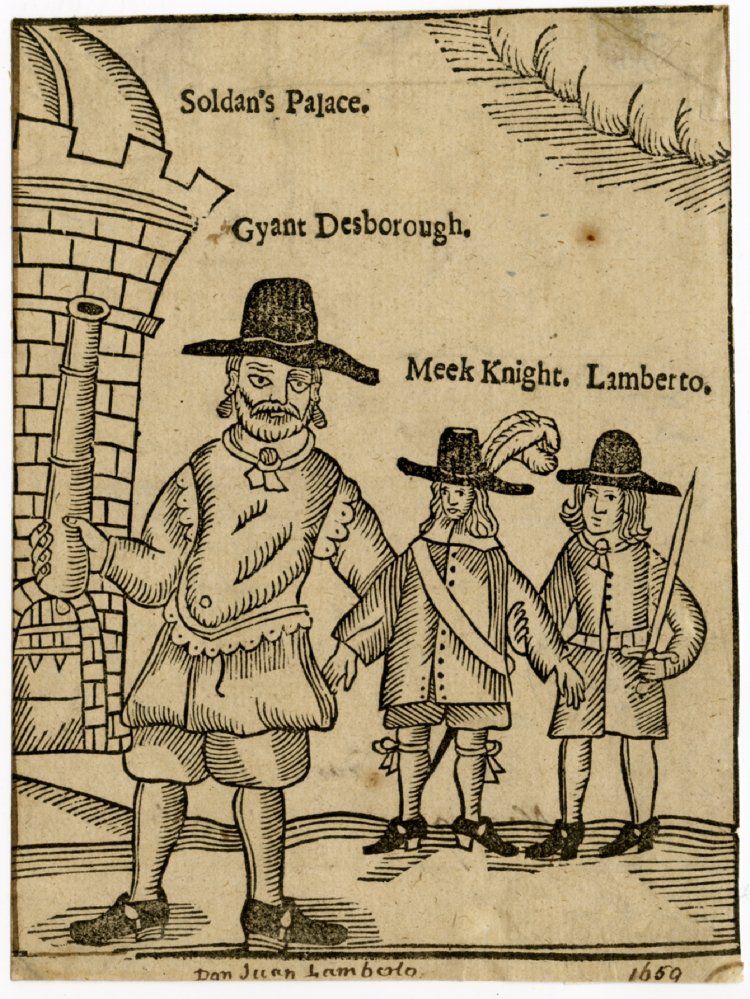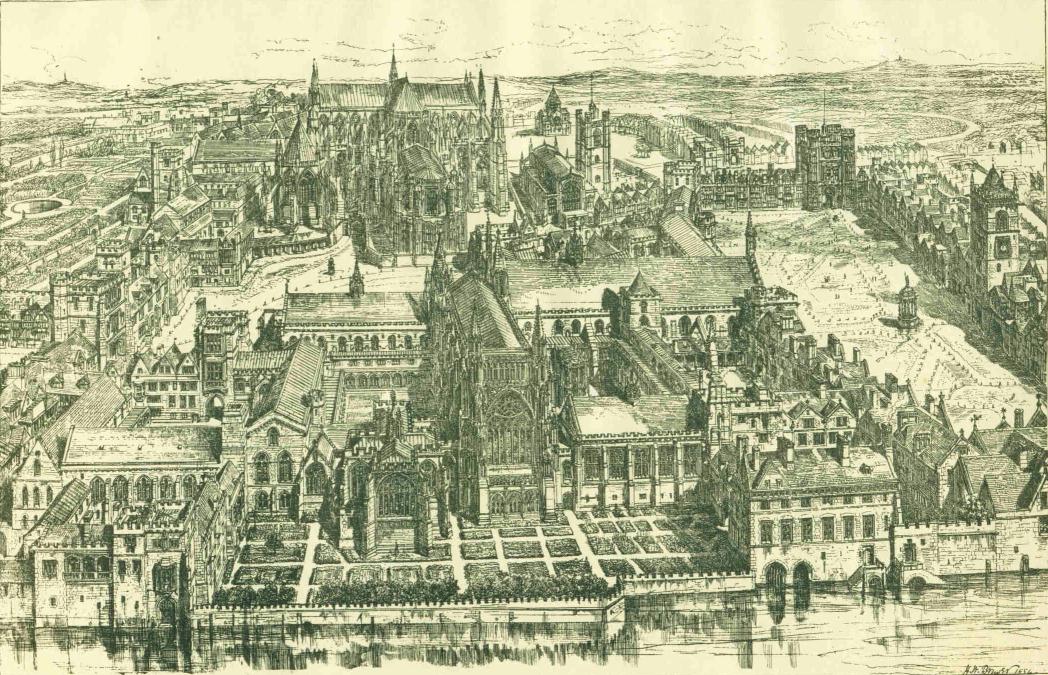|
Nominated Assembly
Barebone's Parliament, also known as the Little Parliament, the Nominated Assembly and the Parliament of Saints, came into being on 4 July 1653, and was the last attempt of the English Commonwealth to find a stable political form before the installation of Oliver Cromwell as The Protectorate, Lord Protector. It was an assembly entirely nominated by Oliver Cromwell and the New Model Army, Army's Council of Officers. It acquired its name from the nominee for the City of London, Praise-God Barebone. The Speaker of the House of Commons (United Kingdom), Speaker of the House was Francis Rous. The total number of nominees was 140, 129 from England, five from Scotland and six from Ireland (see the List of MPs nominated to the English parliament in 1653, list of MPs). After conflict and infighting, on 12 December 1653, the members of the assembly voted to dissolve it. It was preceded by the Rump Parliament and succeeded by the First Protectorate Parliament. Need for a parliament Foll ... [...More Info...] [...Related Items...] OR: [Wikipedia] [Google] [Baidu] |
English Commonwealth
The Commonwealth was the political structure during the period from 1649 to 1660 when England and Wales, later along with Ireland and Scotland, were governed as a republic after the end of the Second English Civil War and the trial and execution of Charles I. The republic's existence was declared through "An Act declaring England to be a Commonwealth", adopted by the Rump Parliament on 19 May 1649. Power in the early Commonwealth was vested primarily in the Parliament and a Council of State. During the period, fighting continued, particularly in Ireland and Scotland, between the parliamentary forces and those opposed to them, in the Cromwellian conquest of Ireland and the Anglo-Scottish war of 1650–1652. In 1653, after dissolution of the Rump Parliament, the Army Council adopted the Instrument of Government which made Oliver Cromwell Lord Protector of a united "Commonwealth of England, Scotland and Ireland", inaugurating the period now usually known as the Protectora ... [...More Info...] [...Related Items...] OR: [Wikipedia] [Google] [Baidu] |
John Lambert (general)
John Lambert, also spelt 'Lambart' (7 September 1619 – 1 March 1684) was an English Parliamentarian general and politician. Widely regarded as one of the most talented soldiers of the period, he fought throughout the Wars of the Three Kingdoms, and was largely responsible for victory in the 1650 to 1651 Scottish campaign. Although involved in the discussions between the New Model Army and Parliament during 1647, his first formal involvement in civilian politics was in 1653 when he became a member of the English Council of State. In December 1653, he helped prepare the 'Instrument of Government', which provided the constitutional framework for the Protectorate. He later fell out with Oliver Cromwell, largely because he opposed converting his role as Lord Protector into a kingship. He lost his offices in 1657 after refusing to swear an oath of loyalty to Cromwell, and after Cromwell's death in September 1658, he re-entered politics as Member of Parliament for Pontefract in ... [...More Info...] [...Related Items...] OR: [Wikipedia] [Google] [Baidu] |
Pettifogger
{{disambiguation ...
Pettifogger may refer to: * Larsen E. Pettifogger, a character in the comic strip ''The Wizard of Id'' * ''The Pettifogger'', a 2011 film from Lewis Klahr See also * Gaming the system * Trivial objections Trivial objections (also referred to as hair-splitting, nothing but objections, barrage of objections and banal objections) is an informal logical fallacy where irrelevant and sometimes frivolous objections are made to divert the attention away fro ... [...More Info...] [...Related Items...] OR: [Wikipedia] [Google] [Baidu] |
Matthew Tomlinson
Matthew Thomlinson (1617–1681) was an English soldier who fought for Parliament in the English Civil War. He was a regicide of Charles I. Tomlinson was a colonel of horse (cavalry) in the New Model Army and was one of the officers presenting the remonstrance to parliament in 1647. He took charge of Charles I in 1648, until Charles's execution, but refused to be his judge. He followed Oliver Cromwell to Scotland in 1650. On Cromwell's dissolution of the Rump Parliament Tomlinson was chosen as one of the members of the Council of State that succeeded it, and of the Barebones Parliament. Sent to Ireland to join the government there, he was knighted by Henry Cromwell who, nevertheless, distrusted him; in 1658 he was recalled to London as one of Ireland's representatives in Oliver Cromwell's new House of Peers. He was impeached by the parliamentary party in 1660 but escaped punishment at the restoration of the monarchy. Biography Thomlinson, baptised 24 September 1617, was the secon ... [...More Info...] [...Related Items...] OR: [Wikipedia] [Google] [Baidu] |
John Desborough
John DesboroughAlso spelt John Disbrowe and John Desborow (the latter in the Indemnity and Oblivion Act, section XLIII) (1608–1680) was an English soldier and politician who supported the parliamentary cause during the English Civil War. Life He was the son of James Desborough of Eltisley, Cambridgeshire, and of Elizabeth Hatley of Over in the same county. He was baptized on 13 November 1608. He was educated in law. On 23 June 1636 he married at Eltisley Jane, daughter of Robert Cromwell of Huntingdon, and sister of Oliver Cromwell, the future Lord Protector. He took an active part in the English Civil War, and showed considerable military ability. In 1645, he was present as major in the engagement at Langport on 10 July, at Hambleton Hill on 4 August, and on 10 September he commanded the horse at the storming of Bristol. Later he took part in the operations round Oxford. In 1648, as colonel he commanded the forces at Great Yarmouth. He avoided all participation in the t ... [...More Info...] [...Related Items...] OR: [Wikipedia] [Google] [Baidu] |
Henry Scobell
Henry Scobell (baptised 1610; died 1660) was an English Parliamentary official, and editor of official publications. He was clerk to the Long Parliament, and wrote on parliamentary procedure and precedents. Life Initially under-clerk of the parliaments, Scobell became Clerk of the House of Commons from 5 January 1649, his predecessor Henry Elsynge having resigned. Scobell also held a position as censor of publications, and then was Clerk of the Parliaments for life with effect from 14 May 1649. He was the first editor, from 9 October 1649, of ''Severall Proceedings in Parliament'', an early official newspaper, and the second of Parliament's publications. In the Rump Parliament, Scobell found himself in the middle of the clashes leading to its dissolution in 1653. He remained Clerk to Barebone's Parliament. From 1655 Scobell became Clerk to the Council of State, a large jump in status, in succession to John Thurloe and sharing the position with William Jessop. Up to then he ... [...More Info...] [...Related Items...] OR: [Wikipedia] [Google] [Baidu] |
Speaker Of The House Of Commons (United Kingdom)
The speaker of the House of Commons is the presiding officer of the House of Commons, the lower house and primary chamber of the Parliament of the United Kingdom. The current speaker, Sir Lindsay Hoyle, was elected Speaker on 4 November 2019, following the retirement of John Bercow. Hoyle began his first full parliamentary term in the role on 17 December 2019, having been unanimously re-elected after the 2019 general election. The speaker presides over the House's debates, determining which members may speak and which amendments are selected for consideration. The speaker is also responsible for maintaining order during debate, and may punish members who break the rules of the House. Speakers remain strictly non-partisan and renounce all affiliation with their former political parties when taking office and afterwards. The speaker does not take part in debate or vote (except to break ties; and even then, the convention is that the speaker casts the tie-breaking vote accor ... [...More Info...] [...Related Items...] OR: [Wikipedia] [Google] [Baidu] |
Short Parliament
The Short Parliament was a Parliament of England that was summoned by King Charles I of England on the 20th of February 1640 and sat from 13th of April to the 5th of May 1640. It was so called because of its short life of only three weeks. After 11 years of attempting Personal Rule between 1629 and 1640, Charles recalled Parliament in 1640 on the advice of Lord Wentworth, recently created Earl of Strafford, primarily to obtain money to finance his military struggle with Scotland in the Bishops' Wars. However, like its predecessors, the new parliament had more interest in redressing perceived grievances occasioned by the royal administration than in voting the King funds to pursue his war against the Scottish Covenanters. John Pym, MP for Tavistock, quickly emerged as a major figure in debate; his long speech on 17 April expressed the refusal of the House of Commons to vote subsidies unless royal abuses were addressed. John Hampden, in contrast, was persuasive in private: he s ... [...More Info...] [...Related Items...] OR: [Wikipedia] [Google] [Baidu] |
Whitehall
Whitehall is a road and area in the City of Westminster, Central London. The road forms the first part of the A roads in Zone 3 of the Great Britain numbering scheme, A3212 road from Trafalgar Square to Chelsea, London, Chelsea. It is the main thoroughfare running south from Trafalgar Square towards Parliament Square. The street is recognised as the centre of the Government of the United Kingdom and is lined with numerous departments and ministries, including the Ministry of Defence (United Kingdom), Ministry of Defence, Horse Guards (building), Horse Guards and the Cabinet Office. Consequently, the name "Whitehall" is used as a metonymy, metonym for the British Civil Service (United Kingdom), civil service and British government, government, and as the geographic name for the surrounding area. The name was taken from the Palace of Whitehall that was the residence of Kings Henry VIII of England, Henry VIII through to William III of England, William III, before its destruction b ... [...More Info...] [...Related Items...] OR: [Wikipedia] [Google] [Baidu] |
Anabaptist
Anabaptism (from New Latin language, Neo-Latin , from the Greek language, Greek : 're-' and 'baptism', german: Täufer, earlier also )Since the middle of the 20th century, the German-speaking world no longer uses the term (translation: "Re-baptizers"), considering it biased. The term (translation: "Baptizers") is now used, which is considered more impartial. From the perspective of their persecutors, the "Baptizers" baptized for the second time those "who as infants had already been baptized". The denigrative term Anabaptist, given to them by others, signifies rebaptizing and is considered a polemical term, so it has been dropped from use in modern German. However, in the English-speaking world, it is still used to distinguish the Baptizers more clearly from the Baptists, a Protestant sect that developed later in England. Compare their self-designation as "Brethren in Christ" or "Church of God": . is a Protestantism, Protestant List of Christian movements, Christian movement ... [...More Info...] [...Related Items...] OR: [Wikipedia] [Google] [Baidu] |
Independent (religion)
In Welsh and English church history, Independents advocated local congregational control of religious and church matters, without any wider geographical hierarchy, either ecclesiastical or political. They were particularly prominent during the Wars of the Three Kingdoms as well under the Commonwealth and Protectorate. The New Model Army became the champion of Independent religious views and its members helped carry out Pride's Purge in December 1648. Unlike their Presbyterian allies, Independents rejected any state role in religious practice, including the Church of England, and advocated freedom of religion for most non-Catholics. Their religious views led some to back radical political groups such as the Levellers, who supported concepts like Republicanism, universal suffrage and joint ownership of property. History At the outbreak of the First English Civil War in August 1642, the cause of Parliament was supported by an uneasy alliance between traditional members of the C ... [...More Info...] [...Related Items...] OR: [Wikipedia] [Google] [Baidu] |


_by_Robert_Walker_and_studio.jpg)





